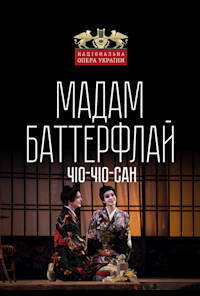February 1890 was one of the most difficult periods in the life of the famous Italian composer Giacomo Puccini. The staging of the opera "Chio-Chio-san" on the stage of Milan's La Scala Theater was booed by the audience.
The triumphant successes of the composer for many years, from "Willis" to "Longing", are instantly forgotten. With extreme cruelty, the audience pounced on the opera, it seems that even Puccini's supporters wanted to erase from memory the very mention of the fervor of recent applause. The gallery, the box, the ground floor did not give rest to the little Japanese girl in the wonderful performance of Rosina Storkio, nor to her creator, who watched with horror and confusion from behind the scenes the development of the play. On the eve of the premiere, Puccini was quite confident in the unconditional success of his new opera. That is why the unexpected failure so impressed the composer.
The reason for this fiasco could be explained by the excessive duration of the second act of the opera. Librettists Luigi Illico and Giuseppe Giacoza have repeatedly pointed out the expediency of dividing it into two parts, and the famous conductor Arturo Toscanini, who read the score of "Madame Butterfly" on the eve of the premiere, also drew attention to this miscalculation. However, Puccini personally saw that this failure was planned in advance by some music critics, the press and spectators involved in theatrical intrigue.
A Japanese woman from Nagasaki appeared before Puccini unexpectedly. In search of the inspiration that once inspired him to create Manon Lescaut (1892), Bohemia (1896) and Longing (1900), the composer finally decided to leave his native Torre del Lago: perhaps a new idea will emerge in a new place.
In the summer of 1900, the London premiere of "Longing" was to take place in Covent Garden. The composer visited England and, as an ardent supporter of theatrical art, could not help but visit the sensational performance of the season, which took place at the Duke of York Theater, and saw a spectacular production of plays by American playwright and theatrical figure David Belasco (1853 - 1931). "Geisha", the plot of which was borrowed from a short story called "Madame Butterfly" (1898) from another American - John Luther Long (1861 - 1927). Excited by the tragic story of the fate of a young Japanese girl Chio-Chio-san and impressed by the theatrical brightness of the play, Giacomo Puccini immediately asked the playwright David Belasco to allow him to use this plot to write a libretto for the opera. In April 1901, the author of the short story agreed to this.
He began his work in collaboration with librettists Giacosa and Illika Puccini. For almost three years the composer worked on the score of the new work. He carefully studied various materials on the life, way of life, art and beliefs of the Japanese people, got acquainted with the best examples of folk music (about 10 folk themes were included in the opera). He faced serious difficulties due to lack of knowledge of the Far Eastern country, where Puccini had never been.
The composer discovered the mysterious world of Japanese culture, which impressed him with its pristine freshness, extraordinary poetry and depth of worldview. By choosing an "exotic plot", Puccini to some extent paid tribute to the general fascination of the society of that time with fashionable oriental trends that penetrated into the cultural and artistic life of Europe. According to one of the famous poets, Japan triumphed in Impressionist painting. Exquisite oriental motifs also prevailed in literature, in particular, in the genre of "colonial" novel, a prominent representative of which was a naval officer, traveler, writer by vocation of the heart of Pierre Loti (1850-192). It was his work, full of oriental exoticism, "Madame Chrysantheme" (1887) was the first embodiment of the history of Chio-Chio-san in literature.
The Japanese composer was greatly assisted in the birth of the famous lyrical work by two Japanese women. One of them, the wife of the Japanese consul in Rome, Mrs. Okiyama, sang to the famous maestro motifs of ancient Japanese songs. To another, the famous dramatic actress Sada Yakko, Puccini turned in order to feel the peculiarities of intonation and rhythm of the Japanese language.
It was the authentic psychological atmosphere recreated by the composer in the exciting "Japanese tragedy" that raised Madame Butterfly to the level of exceptional examples of the world opera scene, and the image of Chio-Chio-san became the best in the gallery of Puccino's heroines. The composer loved this tender and fragile, sincere-hearted geisha, nicknamed the butterfly for his elegance, the most of all his heroines, and dedicated the best musical pages of the score to her.
When that awful evening was over, Puccini began reworking the opera. Butterfly will live! She will return to the stage, and the audience will definitely love her! And almost three months after the high-profile failure in Milan, "Chio-Chio-san" reappears on the stage. This time on May 28, 190 at the Grande Theater (Brescia).
The main role was played by a young singer who came to Italy from faraway Ukraine. Her name is Solomiya Krushelnytska. She was born in Lviv. She is 28 years old. According to contemporaries who knew Krushelnytska, she was a beautiful woman, had a wonderful voice and rare artistic talent. At that time, Solomiya was already known primarily as a performer of Wagner's operas. Voice, drama, appearance - all best suited for the heroines of the operas of the great German composer. It is no coincidence that Puccini hesitated for a long time before offering her the party of Madame Butterfly. But Krushelnytska herself was even more indecisive - a very demanding actress.
Puccini's confidence in the viability of his opera finally paid off. The audience greeted the work with elation, which at the end of the play became a general admiration. When Krushelnytska finished performing the famous aria Chio-Chio-san from the 2nd act, the hall exploded with applause. According to the famous Italian musicologist and her contemporary, the Ukrainian singer defended and defended in the artistic world "Madame Butterfly", neglected by the public of La Scala. Krushelnytska later recalled the unforgettable event of that wonderful May evening: “The audience threw flowers at us, chanted, shouted in delight. Puccini literally flew into my dressing room with a huge bouquet of flowers. He thanked me for this success. We hugged tightly, kissed and cried with joy ... "
When he returned home, the infinitely grateful composer signed his photograph "Alla riú grande e delizioza Vutterfly. Giasomo Russini. Torre del Lago. 1904 ("The most beautiful and charming Butterfly. Giacomo Puccini. Torre del Lago. 1904") and presented it to Krushelnytska.
After its premiere in Brescia, Puccini's work, compared by Italian critics to a revived fragile and colorful butterfly, became extremely popular in the music world. Madame Butterfly premiered with great success in Buenos Aires (1904), Bologna (1905), Naples (1906), and Rome (1908). In 1905, Puccini received an invitation from the American press and went on a tour of the United States with the Italian troupe. In 1907, the opera was staged at the Metropolitan Opera in New York. The premieres of the play at London's Covent Garden (1905) and the Paris Comic Opera (1906) were a triumph.
In Kiev, the first production of Puccini's work was made seven years after the Milan premiere. Later, the theater repeatedly turned to this popular opera. The last production, performed by Kyivans in 1962, lasted in the theater's repertoire until the early 1980s.
On the Ukrainian opera stage, Madame Butterfly knew many wonderful performers of the Chio-Chio-san party, such as K. Voronets, L. Wheeler, Z. Gaidai, N. Kotysheva, N. Zakharchenko, K. Radchenko, N. Mileschuk, but Of particular note are the names of two prominent singers - Lamari Chkonia and Gisela Tsypola. The victories of Kyiv's Chio-Chio-san at the First and Fourth Tokyo International Competitions for the Best Madame Butterfly in the World have become a brilliant achievement of world vocal art.



